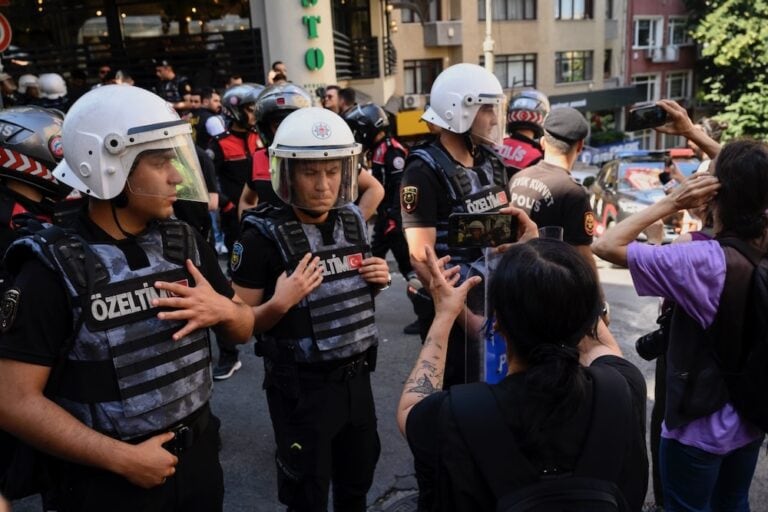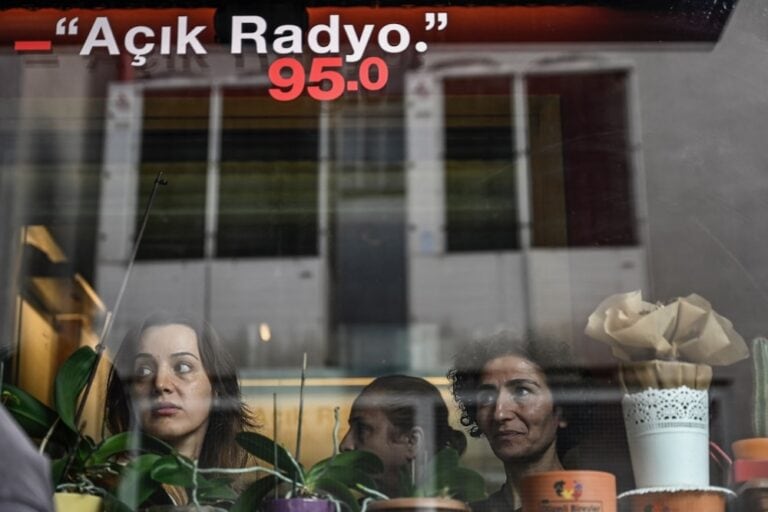(BIANET/IFEX) – Sociologist Ismail Besikci, known in Turkey for his enduring academic interest in the Kurds and for facing both an end to his academic career and imprisonment over his books, is on trial under Article 216 of the Turkish Penal Code. Besikci had written an article entitled “We did not talk, we had it […]
(BIANET/IFEX) – Sociologist Ismail Besikci, known in Turkey for his enduring academic interest in the Kurds and for facing both an end to his academic career and imprisonment over his books, is on trial under Article 216 of the Turkish Penal Code.
Besikci had written an article entitled “We did not talk, we had it printed”, which was published in the monthly magazine, “Popüler Kürtür Esmer” (Popular Kürture Dark). The magazine’s owner, Ferzende Kaya, and managing editor, Mehmet Ali Izmir, are also on trial.
Prosecutor Remzi Yasar Kizilhan is demanding four to six years’ imprisonment for the three defendants.
The Directorate of Criminal Offences of the Ministry of Justice launched an investigation into the article by Besikci, published on 19 January 2006, following a “secret” complaint by the Armed Forces’ General Staff.
Because the head office of the magazine is in Istanbul, the Ankara Chief Prosecutor’s Office passed the case to the Bakirköy Office in Istanbul.
The prosecution’s expert, Prof. Dr. Mehmet Emin Artuk of the Law Faculty of Marmara University, Istanbul, had argued that there was no case for the application of Article 301, but that “some expressions could be interpreted as ‘incitement to hatred and hostility'”, thus leading to the trial of Besikci and the magazine representatives under Article 216.
There has been some disagreement as to which court is in charge of the proceedings, and the penal court in Bakirköy has asked the Istanbul Chief Public Prosecutor’s Office whether samples of the magazine have been delivered. The case will be continued on 10 December.
Besikci was already facing trial over another case, with prosecutors demanding for more than 100 years’ imprisonment over his books (published by Yurt Publishers) and his articles concerning the Kurdish issue, which had appeared in the pro-Kurdish “Özgür Gündem” newspaper. He has spent years in prison, and some of his books are still banned (see IFEX alert of 21 September 1999). He was released from prison on 12 July 1997 under the Conditional Amnesty Law No. 4304, which allows for the postponement of sentences for previous offences provided that they are not repeated in the next five years.
In another case, the Armed Forces’ General Staff had also secretly complained about an article entitled “Ghost” by Ahmet Kahraman (published in the “Popüler Kürtür Esmer” magazine in December 2005).
Called again as the prosecution’s expert, Prof. Artuk concluded that “the rights to inform and criticise were made use of, there was no degradation of Turkishness or the armed forces, there was no harsh criticism of the army in general, just of (Chief of General Staff) Yasar Büyükanit, and there was no crime committed under Article 301”. There was thus no case opened against Kahraman.


